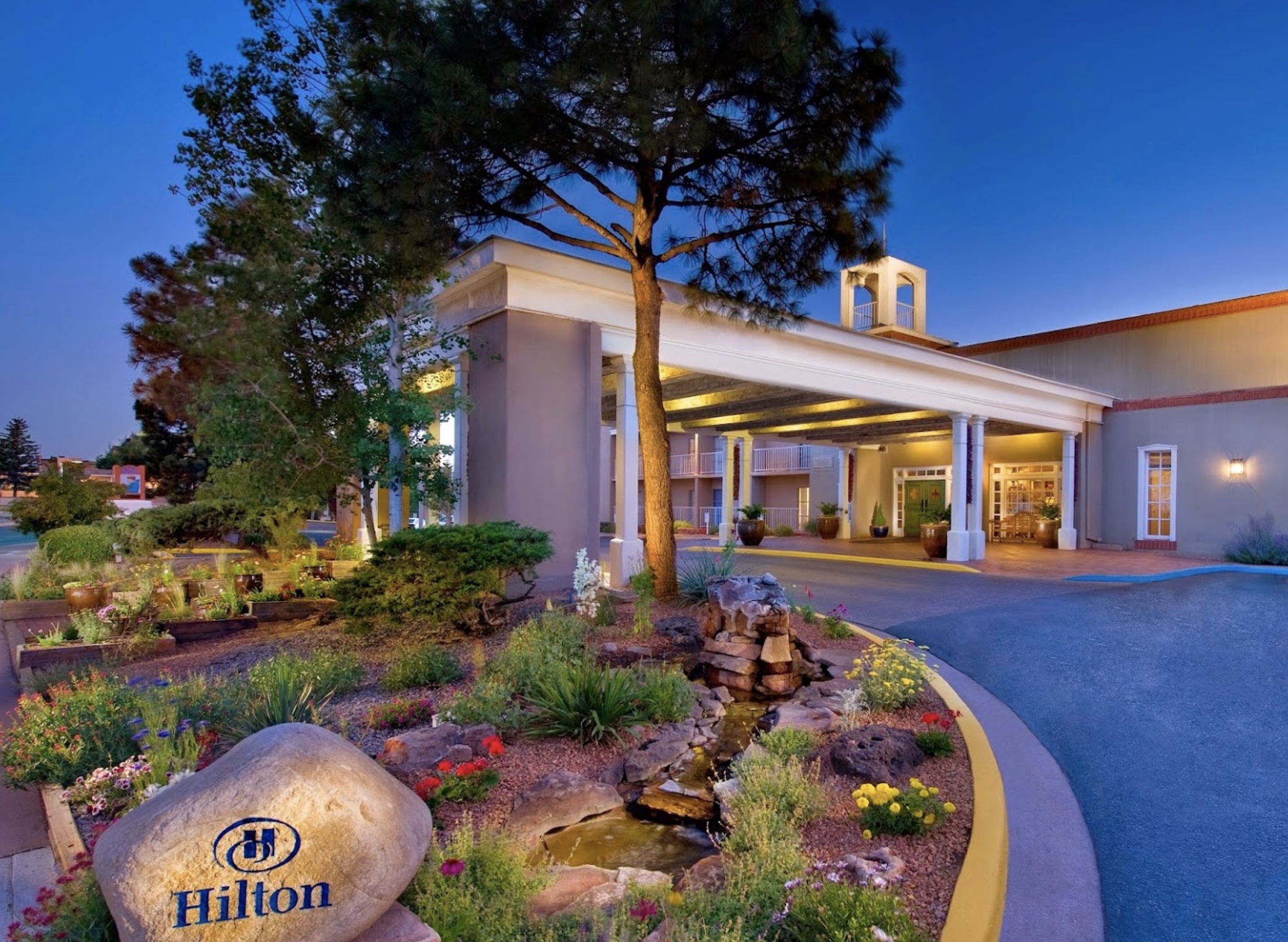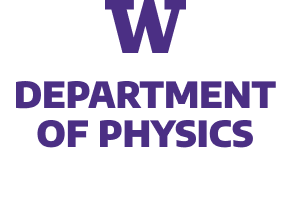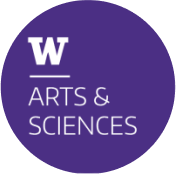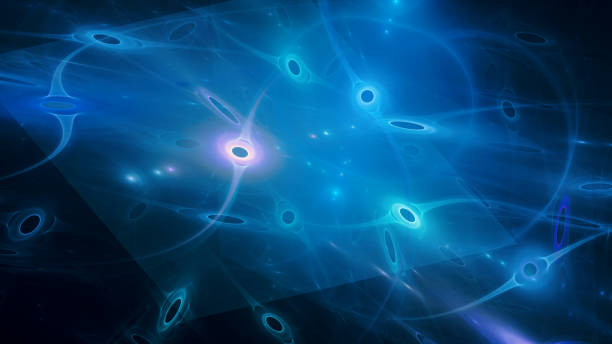
Quantum Information Science for US Nuclear Physics Long Range Planning – 2022
Organizing Committee: Douglas Beck (UIUC), Joe Carlson (LANL), Zohreh Davoudi (UMD), Joe Formaggio (MIT), Sofia Quaglioni (LLNL), Martin Savage (UW)
This meeting will gather experts to consider the current state of quantum information science in nuclear physics research. It is expected to provide information to be considered during the current nuclear physics long-range planning process.
This workshop is jointly-sponsored by Los Alamos National Laboratory (LANL) and the InQubator for Quantum Simulation (IQuS), and will be held in the Hilton Hotel in Santa Fe. The New Mexico Consortium (NMC) has kindly agreed to handle the logistics.
To register for this event : REGISTRATION
We are committed to diverse, representative and supportive meeting.
IQuS, UW and LANL codes of conduct apply.
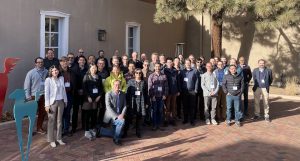
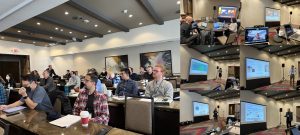
Resources
Overview Presentations:
Quantum Simulation: Zohreh Davoudi and Sofia Quaglioni ,
Quantum Sensing: Douglas Beck and Pieter Mumm ,
QIS Advances in Sensing and Simulation: Mikhail Lukin
Focused Presentations:
Entanglement in Three-Flavor Collective Oscillations, Baha Balantekin
Quantum Evolution in Nuclear Matter, Joao Barata
Towards Quantum Simulations of Nuclear Physics using Yb Optical Tweezer Arrays, Michael Bishof
Quantum Machine Learning Applications to Nuclear Physics, Andrea Delgado
Simulating Bosonic Theories with Bosonic Quantum Circuits, Michael DeMarco
Entropy Suppression Through Quantum Interference in Electric Pulses, Adrien Florio
Efficient Quantum Simulations of Lattice Gauge Theories, Dorota Grabowska
Transitions in (1+1 Light Front Phi^4 Theory using Quantum Computing Method, Mengyao Huang
Multi-body Entanglement in Dense Neutrino Systems, Marc Illa
Quantum Simulations of Real-Time QCD Processes, Dima Kharzeev
Toward Hybrid [Classical, Quantum] Computing for Many-Body Problems, Karol Kowalski
Rare Isotope Doped Superconducting Tunnel Junctions as a Precision Tool for BSM Physics Searches, Kyle Leach
Low-Background Cryogenic Facility @ PNNL, Ben Loer
Entanglement Suppression and Emergent Symmetries in Low-Energy QCD, Ian Low
Neutrino Flavor Oscillations, Joshua Martin
Searches for Massive Neutral Particles Emitted in Nuclear Decays with Mechanical Quantum Sensors, David Moore
Nuclear Physics and QIS, Niklas Mueller
Trapped-Ion Quantum Simulation of Collective Neutrino Oscillations, Francesco Pederiva
Heavy-Ion Collisions – Emergent Phenomena in QCD, Mateusz Ploskon
Inelastic Collisions on a Quantum Computer, Gautam Rupak
Towards Calculating First-Principles Strong Interactions on Universal Quantum Computers, Jesse Stryker
Noise-Resilient Quantum Simulations for Nuclear Science, Kyle Wendt
Analog Quantum Simulation of Topological Models with a Parametric Cavity, Chris Wilson
Quantum Simulation of Jet Quenching in Nuclear Environments Produced in Heavy-Ion and Electron-Ion Collisions, Xiaojun Yao
Hourly Schedule
Tuesday, January 31: Times are local time in Santa Fe - Mountain Time
- 8.45 am - 9.00 am
- Workshop Welcome and Objectives
- 9.00am - 9.30 am
- Quantum Simulation
- Sofia Quaglioni (LLNL) and Zohreh Davoudi (UMD)
- 9.30 am - 9.45 am
- Quantum Sensors
- Pieter Mumm (NIST)
- 9.45 am - 10.00 am
- Community Presentations
- 3 x 5 minute presentations
- 10.00am - 10.30 am
- Coffee Break
- 10.30am - 11.00am
- QIS Advances in Sensors and Simulation
- Misha Lukin (Harvard)
- 11.00 am - 12.00 pm
- Breakouts. 1) Sensors 2) Simulation
- Strategic discussions about plans and requirements for the next 5-10 years to advance quantum sensing and quantum simulations within Nuclear Physics
- 12.00 pm - 1.30 pm
- Lunch
- 1.30pm - 3.00pm
- Community Presentations
- 18 x 5 minute presentations
- 3.00 pm - 3.30 pm
- Group Photo and Coffee
- 3.30 pm - 4.15 pm
- Community Presentations
- 9 x 5 minute presentations
- 4.15pm - 4.30pm
- Quantum Sensors
- Doug Beck (UIUC)
- 4.30pm - 5.00pm
- Discussions of Presentations
Wednesday, February 1 : Times are local time in Santa Fe - Mountain Time
- 9.00 am - 9.30 am
- Recommendations for LRP process
- Development and discussion of main points for LRP process and crafting of recommendations
- 9.30 am - 10.30 am
- Breakouts - further discussions, priorities and writing
- Discuss Recommendations for LRP, and identify elements of associated supporting text and the whitepaper. Bullet points are developed for report back
- 10.30 am - 11.00 am
- Coffee
- 11.00 am - 12.00 pm
- Reports from Breakouts and Discussion
- Breakouts report the highlights from their session, followed by a discussion of the priorities and main points for recommendations and whitepaper
- 12.00 pm - 12.15 pm
- Meeting Ends
- 12.15 pm - 2.00 pm
- Lunch and Adjourn
- Participants depart
- 2.00 pm - 4.30 pm
- Informal Discussions (among remaining participantsi)
